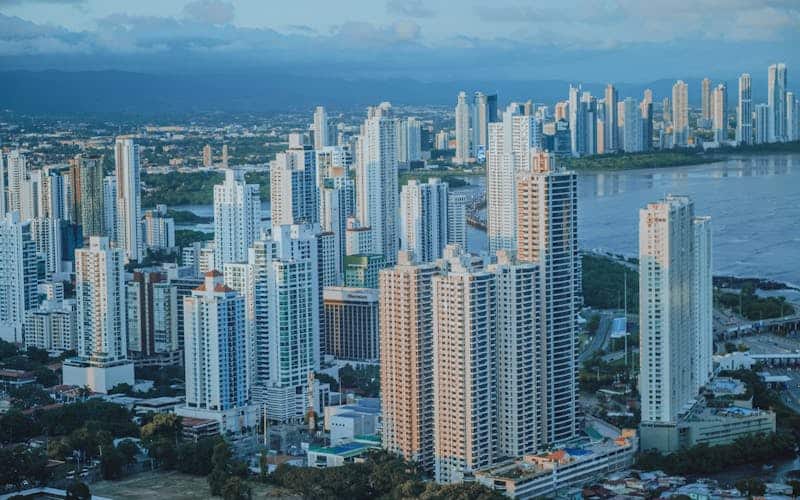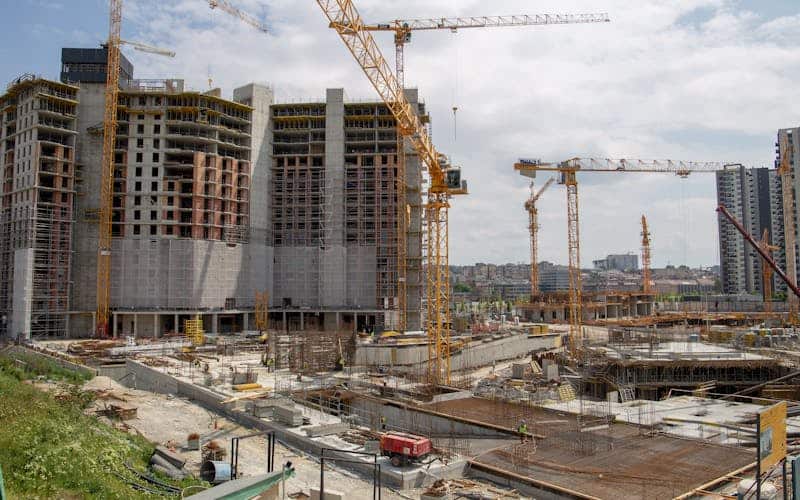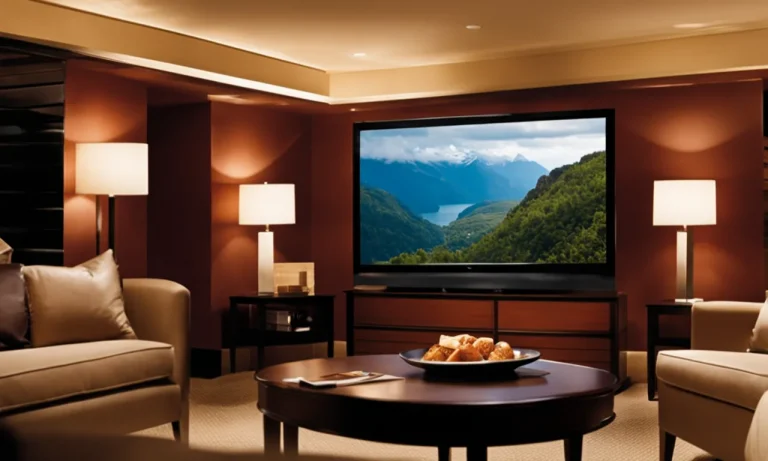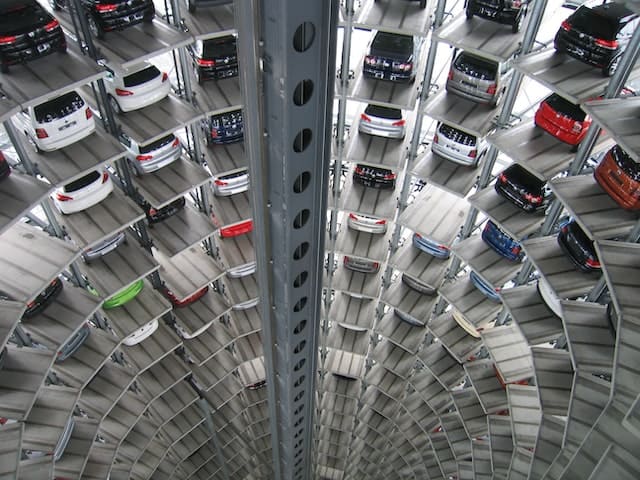Building a hotel from the ground up can be a daunting task, but with the right guidance and planning, it can be a rewarding investment.
If you’re wondering how to build a hotel, we’ve got you covered with this comprehensive guide. B
If you’re short on time, here’s the key takeaway: Building a hotel is a complex and exciting endeavor. It involves planning, development, design, construction, and launching or opening.
In this article, we’ll cover everything you need to know about building a hotel, from choosing a location to obtaining permits and designing the interior.
Choosing the Right Location
Choosing the right location is crucial when building a hotel. Here are some important factors to consider:
- Researching the Market: Before selecting a location, it is worth mentioning that researching the market is essential. This involves analyzing the demand for hotels in the area, the competition, and the target market. It is recommended to assess the market potential by using industry reports and data from reliable sources like Statista.
- Assessing the Site: The next step is to assess the site. The site should be large enough to accommodate the hotel and its amenities. Keep in mind that the site should also be in a location that is safe and secure. Additionally, it is important to evaluate the site’s natural surroundings, such as views and proximity to attractions.
- Considering Accessibility and Amenities: Accessibility is another important factor to consider when choosing a location. The hotel should be easily accessible by car or public transportation or within walking distance to popular attractions. It is also important to consider nearby amenities, such as restaurants, shops, and entertainment options.
Choosing the right location can be a challenging process, but taking the time to research and assess potential sites can lead to a successful hotel venture.

Obtaining Permits and Licenses
Before starting the construction of a hotel, it is essential to obtain all necessary permits and licenses from the local authorities. This process can be time-consuming and complex, so it is important to start early and be well-informed.
Researching Local Regulations
The first step in obtaining permits and licenses is to research the local regulations in the area where the hotel will be built. This includes zoning laws, building codes, and environmental regulations. It is worth mentioning that these regulations can vary significantly depending on the location, so it is important to work with a local attorney or consultant who is familiar with the process.
Keep in mind that certain types of hotels may require special permits, such as those that serve alcohol or have a casino. In addition, the hotel may need to comply with specific accessibility requirements for people with disabilities.
Applying for Permits and Licenses
Once the regulations have been researched, the next step is to apply for the necessary permits and licenses. This typically involves submitting plans and specifications to the local building department and paying a fee.
The plans must show compliance with all applicable regulations and include details such as the number of rooms and floors, the type of construction materials to be used, and the layout of the building.
Unfortunately, the permit process can be lengthy and may involve multiple reviews and revisions. It is important to be patient and work closely with the local authorities to ensure that all requirements are met.
Working with Contractors and Architects
Building a hotel requires a team of professionals, including contractors and architects. It is important to choose experienced and reputable professionals who are familiar with the local regulations and can help ensure that the project is completed on time and within budget.
When selecting a contractor, it is important to obtain multiple bids and check references. The contractor should have experience in building hotels of a similar size and scope. Similarly, when selecting an architect, it is important to review their portfolio and check references. The architect should be able to design a hotel that meets the local regulations and the needs of the guests.
Remember that building a hotel is a complex process that requires careful planning and attention to detail. Obtaining the necessary permits and licenses is just one of the many steps involved in the process.

Designing the Hotel
Designing a hotel is a crucial step towards building a successful hospitality business. The design must accommodate the needs of guests and staff while embodying the hotel’s concept and theme. Here are some essential considerations when designing a hotel.
Creating a Concept and Theme
The concept and theme of a hotel are what sets it apart from other hotels.
It is worth mentioning that the concept and theme should be consistent throughout the hotel, from the lobby to the guest rooms. The hotel’s concept and theme should be appealing to the target audience to attract guests.
When creating a concept and theme, keep in mind the hotel’s location, market segment, and competition.
For example, a beachfront hotel may have a tropical theme, while a hotel in a downtown area may have a contemporary or urban theme.
Choosing Materials and Finishes
Choosing the right materials and finishes can significantly impact a hotel’s design and functionality. The materials and finishes should be durable, practical, and visually appealing. It is essential to choose materials and finishes that match the hotel’s concept and theme.
Some common materials and finishes used in hotel design include wood, metal, glass, stone, and fabric. Hotel chains like Marriott and Hilton have specific brand standards for materials and finishes used in their hotels.
Maximizing Space and Functionality
Maximizing space and functionality is critical when designing a hotel. The design should allow for efficient use of space while providing guests and staff with a comfortable and functional environment.
One way to maximize space is by implementing multifunctional spaces.
For example, a hotel lobby can double as a coworking space or a restaurant can also function as a meeting room. On the other hand, keep in mind that guest rooms should prioritize comfort and privacy over maximizing space.
| Statistic | Explanation |
|---|---|
| 70% | The percentage of hotel guests who prioritize cleanliness when choosing a hotel. |
| 50% | The percentage of hotel guests who prefer hotels with modern designs. |
| 80% | The percentage of guests who expect hotels to provide free Wi-Fi. |
Designing a hotel requires careful consideration of the hotel’s concept and theme, materials and finishes, and space and functionality. By incorporating these essential elements, a hotel can attract and retain guests while providing them with a memorable experience.
Construction and Project Management
Building a hotel requires extensive construction and project management skills to ensure that the project is completed on time and within budget. Here are some key factors to consider:
Hiring a General Contractor
One of the most important decisions in hotel construction is choosing the right general contractor, as they will oversee the entire construction process.
It is worth mentioning that a reputable contractor will have a proven track record of successful hotel projects, and will have a strong network of subcontractors and suppliers. Keep in mind that it is crucial to conduct thorough research and request detailed bids from several contractors before making a final decision.
Managing the Construction Process
Once a general contractor has been hired, it is important to establish a clear communication plan and project milestones. Regular meetings with the contractor and project team will ensure that everyone is on the same page and any issues or delays can be addressed in a timely manner.
Unfortunately, unforeseen circumstances can arise during construction that may impact the timeline or budget, so it is crucial to have contingency plans in place.
Monitoring Budget and Timeline
Monitoring the budget and timeline is critical for the success of any hotel construction project. It is recommended to establish a comprehensive budget at the beginning of the project, with a detailed breakdown of all costs including permits, materials, labor, and contingencies.
Remember, unexpected expenses can arise during construction, so it is important to have a cushion in the budget for unforeseen costs. On the other hand, monitoring the timeline is equally important to ensure that the project is completed on schedule and ready for opening.

Furnishing and Equipping the Hotel
When it comes to furnishing and equipping a hotel, there are several factors to take into consideration. The right furniture and decor can create a welcoming and comfortable atmosphere for guests, while carefully chosen amenities and equipment can enhance their overall experience.
Here are some key aspects to keep in mind:
- Selecting Furniture and Decor: Choose furniture and decor that fits the overall theme and style of the hotel. For example, a modern hotel may feature sleek and minimalist furniture, while a more traditional hotel may opt for classic and elegant pieces. It is worth mentioning that comfort should always be a top priority, so make sure to select high-quality mattresses, linens, and pillows for the guest rooms. Additionally, consider incorporating local art or cultural elements to give the hotel a unique and authentic feel.
- Choosing Amenities and Equipment: Amenities and equipment can make or break a guest’s experience, so it is important to choose wisely. Keep in mind the needs and preferences of your target audience, as well as the hotel’s location and amenities. For example, a beachfront hotel may offer beach umbrellas, chairs, and towels, while a business hotel may provide a fully-equipped business center and meeting rooms. It is also worth considering environmentally-friendly amenities, such as low-flow showerheads and LED lighting, as they can not only save costs but also appeal to environmentally-conscious guests.
- Creating a Comfortable and Inviting Atmosphere: The overall atmosphere of the hotel can greatly impact a guest’s experience. To create a welcoming and comfortable environment, pay attention to details such as lighting, temperature, and scent. For example, dimmer switches and warm-toned bulbs can create a cozy and relaxing ambiance, while cool-toned lights can make a space feel more modern and energizing. Additionally, consider adding pleasant scents throughout the hotel, such as essential oil diffusers or scented candles, to create a more inviting and pleasant atmosphere.
By taking the time to carefully select furniture, amenities, and equipment, hotel owners and operators can create a space that not only meets the needs of guests but also exceeds their expectations. Keep in mind that investing in quality furnishings and amenities can lead to higher guest satisfaction and ultimately, higher revenue for the hotel.
Marketing and Launching the Hotel
Marketing and launching a hotel is a crucial step towards establishing a successful hotel business. It involves developing a marketing strategy, creating a website and social media presence, and hosting a soft opening and grand opening.
Developing a Marketing Strategy
It is worth mentioning that a marketing strategy should be developed well in advance of the hotel’s opening date. This strategy should include identifying the target market, assessing the competition, and determining the unique selling point of the hotel.
Keep in mind that a well-crafted marketing plan can make a significant difference in how the hotel is received by potential customers.
Remember, a marketing strategy does not only include traditional marketing methods, but also digital marketing efforts such as social media and search engine optimization. Utilizing these marketing channels can help the hotel reach a wider audience and increase its visibility.
Creating a Website and Social Media Presence
A website and social media presence are essential for any business, including hotels. A well-designed website can help potential customers learn about the hotel, its amenities, and make bookings.
Additionally, a social media presence can help build brand awareness and increase engagement with potential customers. On the other hand, it is important to keep in mind that creating a website and social media presence requires a significant investment of time and resources.
It is recommended to hire a professional web designer and social media manager to ensure that the hotel’s online presence is top-notch.
Hosting a Soft Opening and Grand Opening
Hosting a soft opening and grand opening can generate a buzz around the hotel and attract potential customers.
A soft opening allows the hotel to test its operations and receive feedback from early customers. A grand opening is typically a larger event that includes media coverage, VIP guests, and special promotions.
It is unfortunate that hosting a soft opening and grand opening can be expensive, but it is an investment that can pay off in the long run.
By creating a positive first impression with early customers, the hotel can establish a loyal customer base and generate positive word-of-mouth marketing.
Managing and Operating the Hotel
Once the hotel is built and ready to operate, it is crucial to have a well-managed and efficient operation to ensure guest satisfaction and safety. Here are some important aspects to consider:
Hiring and Training Staff
The staff is the backbone of any hotel operation. It is important to hire the right people and provide them with adequate training to ensure they can perform their duties efficiently.
This includes hiring managers, front desk staff, housekeeping, maintenance, and food and beverage staff. It is worth mentioning that proper training can increase staff productivity, reduce turnover rates, and improve overall guest satisfaction.
One way to ensure staff are well-trained is to establish a training program that covers all areas of hotel operation. This program should include an orientation, job-specific training, ongoing training, and performance evaluations.
Keep in mind that training should not only focus on technical skills but also on soft skills such as communication and problem-solving.
Establishing Policies and Procedures
Having clearly defined policies and procedures is crucial for a well-managed hotel operation. Policies can cover a wide range of areas such as employee conduct, guest services, and safety procedures. Establishing these policies can help to ensure consistency in service delivery and reduce the risk of liability issues.
It is important to communicate these policies to all staff members and ensure they understand them. This can be achieved through regular meetings, staff training, and written documentation. Remember, policies and procedures should be reviewed and updated regularly to ensure they reflect current laws and industry standards.
Ensuring Guest Satisfaction and Safety
Guest satisfaction and safety should be the top priority of any hotel operation.
One way to ensure guest satisfaction is to have a guest feedback system in place. This can include surveys, comment cards, and online reviews. These feedback systems can provide valuable insights into guest preferences, satisfaction levels, and areas for improvement.
Another aspect of guest satisfaction is ensuring their safety. This includes having adequate security measures in place, such as surveillance cameras, security personnel, and emergency procedures. It is worth mentioning that guest safety is not only important for their well-being but also for the hotel’s reputation and liability.
Conclusion
Building a hotel requires time, effort, and financial investment, but with a solid plan and the right team, it can be a lucrative and fulfilling venture.
We hope this guide has provided you with a comprehensive understanding of how to build a hotel and has inspired you to take on this exciting challenge.
Remember, success in the hospitality industry is all about providing exceptional service and creating memorable experiences for your guests.






